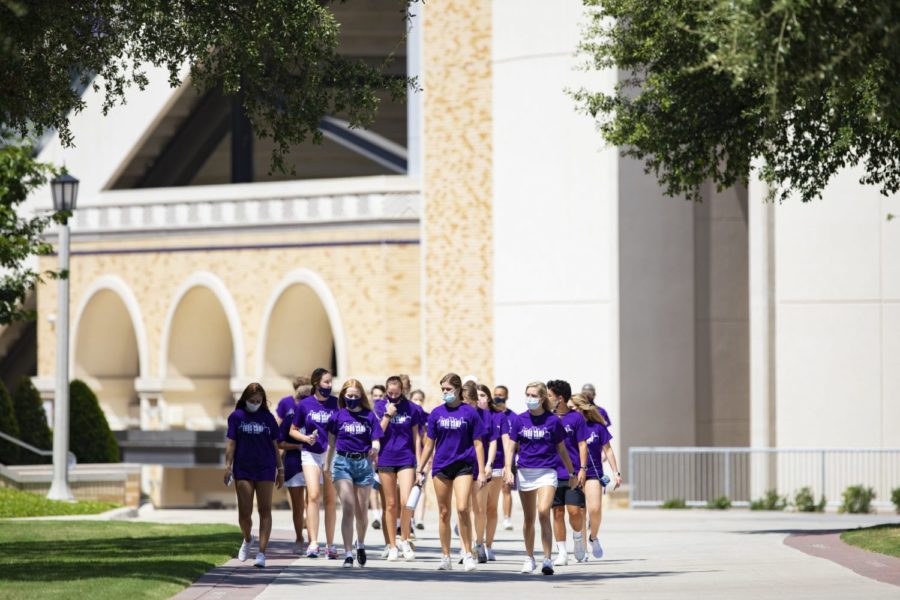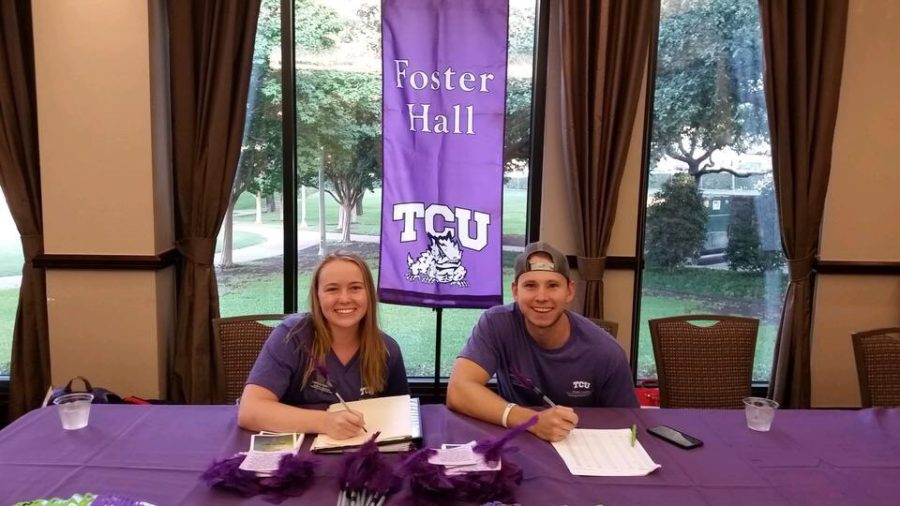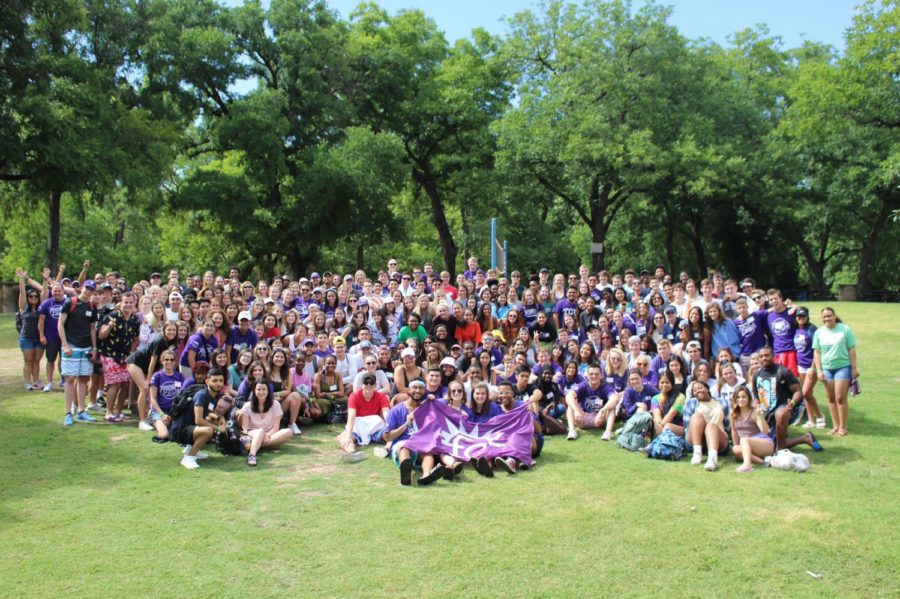TCU’s Frog Camp continues to serve its purpose for incoming students as it approaches 30 years of camps, and will return to its normal format after being impacted by the pandemic last summer.
The camp was created by Barbara Herman in 1993 in hopes to bring the incoming TCU community closer together before actually getting to campus. The camp provides lifelong memories, a stable support system coming into campus and an understanding of all the available resources around the TCU community.
Why Frog Camp got startedAlthough Frog Camp is not mandatory, it is a major component of TCU’s First-Year Experience program which is designed to create a welcoming environment for incoming students.
Traditions
One way Frog Camp makes sure to make the environment as comfortable and welcoming as possible is the inclusive traditions incorporated into the camp.
Frog Camp traditions include games, dancing, team bonding and learning the true meanings behind some of TCU’s traditions such as the Riff Ram Bah Zoo chant.
“Each camp has its own unique traditions that serve to give the camp its own personality and purpose,” Hudson Auerbach, a TCU junior political science major on the Frog Camp Director Board, said.
One unwritten tradition most students leave Frog Camp having experienced are the relationships they form.
“Many come in pretty nervous as they do not know anyone at camp or coming to TCU. Within a few days, they leave not just knowing people also going to TCU but with friends who are going to TCU,” Brian McDermott, assistant director of first-year experience, said.
Statistics
In order to make Frog Camp a unique and special experience for everyone involved, facilitators and directors have made sure to provide enough resources for everyone to form personal connections.
Although there are many different Frog Camps offered, one of the main focuses is to form deep friendships that will last throughout a student’s time at TCU and beyond.
Typically, there will be about 250-275 students at each camp. Within this big group of students are many different small groups that consist of only 10-15 students.
These small groups will have two co-facilitators, one male and one female. The small groups will also have one faculty or staff member join the group to serve as a resource for incoming students once they arrive on campus.
This year
Last year, Frog Camp was only held on the TCU campus due to the pandemic, but things are beginning to look up for this coming summer.
Frog Camp is returning to the more traditional values that come along with the camp while still following the safety guidelines that come with COVID-19.
This summer, six camps will be offered in Fort Worth (3 Casa Nueva camps, 2 Cultura camps, and 1 All-Stars camp) and one camp will take place in Bruceville, TX (Challenge).
There will also be two Alpine camps this summer which take place in Colorado. These camps will offer multiple activities and bonding opportunities for incoming students to enjoy with their future peers including sightseeing, games, dinners and many more excursions that go along with the location of the camp.
Incoming students should continue to check their emails for more Frog Camp information. They can also go to sds.tcu.edu for more details.
Advice going into Frog Camp from current students
“Have fun and remember, the more you put into Frog Camp, the more you get out of it,” Auerbach said.
“Be willing to be vulnerable and open-minded,” Jordyn Delong, senior child development major, said.
“Don’t be afraid to go out of your comfort zone,” Laurel Stanley, a TCU junior art history major, said.










